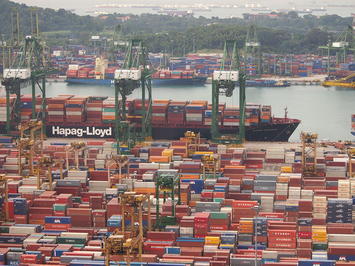
Whatever his grievous shortcomings, President Trump has succeeded in one thing: smashing the once imposing edifice of neoliberalism. His presidency rejects the neoliberal globalist perspective on trade, immigration and foreign relations, including a penchant for military intervention, that has dominated both parties’ political establishments for well over two decades.
Some of Trump’s actions, notably the proposed tariffs, may be crude and even wrong-headed but other moves, notably focus on China’s buying of American technology assets, expose the fundamental weakness of the neoliberal trade regime. Trump’s policy agenda would never have risen if neoliberalism was able to improve the lives of the vast majority of citizens rather than promote stagnation and downward mobility for a large portion of the population.
The geography of neoliberalism
Neoliberal policies have worked well for those in the upper economic, academic, bureaucratic classes and the cosmopolitan places where they predominate. But what works for Manhattan or Palo Alto, as well as Goldman Sachs or Apple, does not help so much residents of declining industrial cities, small towns and villages which suffered millions of lost jobs due to China or NAFTA.
Trump’s support in these locations reflects a broader global phenomenon. Like the Midwestern and southern towns recently denounced by Hillary Clinton as looking “backward,” neoliberal policies have been rejected by similar geographies in the United Kingdom, as seen in the Brexit vote, and powered nationalist parties in such varied places as Germany, Russia, Slovakia, Hungary, Sweden, Poland and the Netherlands. Most recently Italians, including in the impoverished south, voted largely for anti-immigrant, nationalist and populist parties.
Read the entire piece at The Orange County Register.
Joel Kotkin is executive editor of NewGeography.com. He is the Roger Hobbs Distinguished Fellow in Urban Studies at Chapman University and executive director of the Houston-based Center for Opportunity Urbanism. His newest book is The Human City: Urbanism for the rest of us. He is also author of The New Class Conflict, The City: A Global History, and The Next Hundred Million: America in 2050. He lives in Orange County, CA.
Photo: ShnapThat! (Singapore Ship Docks (PSA)) [CC BY 2.0], via Wikimedia Commons













Definition of Terms
I agree with the article in general, except for the term "neoliberal".
According to the most common definition, "Neoliberalism supports fiscal austerity, deregulation, free trade, privatization and greatly reduced government spending. Neoliberlism is often associated with laissez-faire economics, a policy that prescribes a minimal amount of government interference in the economic issues of individuals and society."
The other word for this philosophy would be "Conservatism".
Style versus Substance
Reports of Trump's ignorance of the Constitution have been greatly exaggerated. And as for his purported authoritarian posturing, the only thing that separates it from Obama's is the adjective "brutish," added by Kotkin as a de rigeur sign of submission to the policy-intellectual caste to which Kotkin belongs and its official disdain for Trump. If only he were more polite, they say. Well, he isn't, but that aesthetic defect has been elevated far above all substance in the caste's evaluation of his Administration, which is mostly an evaluation of his person. He has been weighed in the balance and found wanting.
Meanwhile, Kotkin is certainly old enough to recall that Dick Gephardt was a serious presidential contender on the basis of tariffs and other protections for US industry. Such a policy was once a centerpiece of the politics of the Democratic Party, and was well within the normal distribution of economic policies that still counted as "neoliberal."
And I am unclear on Kotkin's reference to the immigration prong of Trump's alleged rejection of the "neoliberal globalist perspective." Kotkin rightly mentions "uncontrolled mass immigration." It is disingenuous (and that's being polite) to describe opposition to that as either xenophobic or a rejection of world order. It is not an indicator of "rightist nationalism." But it is called that because it must be made to serve modern progressive politics.